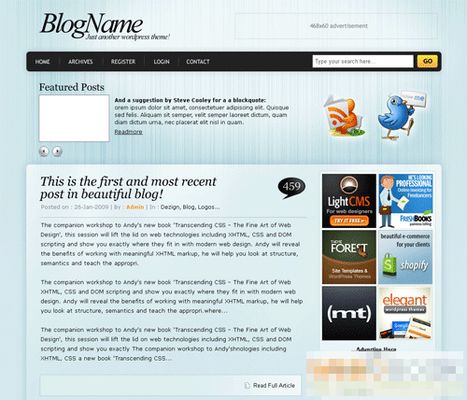- By CFD Trading
- 2025-10-16 09:37

Can You Really Lose Your Own Money with a Prop Firm Match? Let’s Break It Down
Trading with prop firms has become a buzzword in the financial world — offering traders a shot at bigger capital, better tools, and an accelerated runway to grow their skills. But a common question still lingers: if you’re trading on a prop firms account that’s matched or funded, can you actually lose your own money in the process? The quick answer is nuanced, but understanding how it all works could save you from some unexpected surprises.
The Basics: What’s a Prop Firm Match Anyway?
A proprietary trading firm, or prop firm, essentially acts as a partner that provides capital for traders to operate within predefined risk parameters. When you hear “match,” it often means the firm will allocate capital that’s tied to your trading account — sometimes dollar-for-dollar, sometimes a multiple. You’re trading with their money, but you’re often still on the hook for certain rules or fees.
So, can you lose your own money? That depends on the structure. Usually, when a prop firm offers a “match” or a “funded account,” it’s set up so that your personal capital isn’t directly exposed. Rather, youre trading their money, and your risk is limited to specific conditions in the contract. But it’s not always black and white.
Risk Limits and How You Can Lose Your Own Money
Most reputable prop firms implement risk management rules designed to protect both parties. These include drawdown limits, stop-loss restrictions, and minimum profit targets. If you follow the rules, your personal funds are mostly insulated. However, if you ignore the guidelines or your trading style is aggressive beyond what’s stipulated, you might end up responsible for losses that go beyond the firm’s initial match.
For example, some firms require that traders deposit an initial “seed” capital before they begin, which they might not match dollar-for-dollar. If you breach the minimum funding or risk parameters, you could be liable to cover you own losses — in effect, losing your own money. Also, if you’re trading on a platform that involves leverage or margin, excessive leverage can wipe out your own funds faster than expected, even if you’re trading a funded account.
The Advantage of Using Prop Firms: Why It’s Not Just a Money Loss Game
Trading with a prop firm’s match can significantly lower your personal financial risk. Instead of risking thousands out-of-pocket, you’re working with funds provided by the firm under strict rules. It’s akin to borrowing a slightly larger boat to navigate stormy seas, but knowing where the safe harbor is.
This setup unlocks a few key advantages:
- Lower personal capital needed: You don’t have to risk your savings on every trade, which means less stress and greater flexibility.
- Learning opportunity: With the firm’s capital at your disposal, you can focus on refining strategies like forex, stocks, crypto, or commodities without worrying about draining your account.
- Access to diverse markets: Many prop firms offer access to a wide range of assets — indices, options, futures — broadening your trading horizons.
A word of caution: Despite the lowered personal risk, it’s not a license to trade recklessly. Understanding the rules and maintaining discipline are what separate successful traders from those who end up losing more than they bargained for.
Decentralization & the Future of Prop Trading
The rise of decentralized finance (DeFi) platforms signals a shift in how trading capital and risk are managed. Peer-to-peer lending, tokenized assets, and smart contracts mean you could someday access matched capital without a traditional intermediary. But this space also faces hurdles like regulatory uncertainty, security vulnerabilities, and a need for transparency.
Looking ahead, AI-driven trading algorithms and smart contracts could make prop trading more dynamic and accessible. Imagine AI systems that automatically adhere to your risk profile, adjust leverage on the fly, and execute trades across multiple assets — all within a decentralized framework. Yet, they also introduce new challenges: how do we prevent catastrophic bugs, ensure fair access, or avoid “black box” decision-making?
Prop Trading’s Potential: Growth and Innovation
The future of prop trading is likely to involve a blend of traditional hierarchical firms and decentralized models. As regulations catch up and technology advances, we’ll see more flexible, inclusive platforms that don’t just cater to professional traders but open doors for aspiring ones as well.
In terms of asset diversity, traders will benefit from more options — from forex to crypto, from commodities to options trading — all powered by smarter tools. The key will be striking the right balance between risk and reward, understanding that even with a prop firm match, the line between protecting your capital and risking it can be thin.
Final Takeaway: Crafting Your Trading Strategy
Trading in a prop firm setup can be a game-changer — offering leverage, capital, and the opportunity to hone skills without draining your personal wallet. But don’t forget: the real safety net is knowledge, discipline, and understanding the fine print. Risk management remains king, whether you’re trading stocks or crypto, whether through a traditional prop firm or emerging decentralized platforms.
Remember: With the right approach, you can explore faster, learn smarter, and grow your trading portfolio. And yes, with a prop firm match, losing your own money isn’t necessarily part of the game — but stay sharp, stay disciplined, and always keep your eyes open for the next big trading opportunity.



